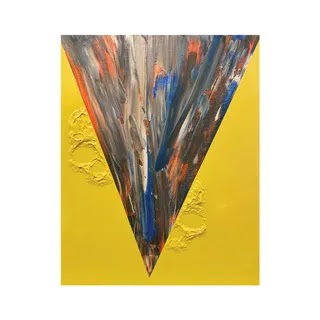On his eighth album, Lupe Fiasco relinquishes his sanctimonious impulses and refocuses his vision on phonetic thrills and poignant reflection.
Sometime after 2011’s Lasers, Lupe Fiasco the ornery scholar overtook Lupe Fiasco the musician. Instead of the high-concept, accessible lyricism of his early days, the rapper ditched attempts at mainstream palatability, a result of fatigue from Chicago violence, label battles, and artistic compromises. Beginning with 2012’s Food & Liquor II: The Great American Rap Album, Pt. 1, his albums became as sanctimonious and unwieldy as they were musically sterile, with grand ideas being stifled by mediocre execution and generic production. Essentially, the music started to resemble required listening for some heavy-handed lesson plan.
Lupe tidies up on Drill Music in Zion, a concise project that distills his best tendencies with a focus unseen in years. Driven by poignant reflection, labyrinthine bar work, and high-wire rhyme schemes, Drill Music in Zion is Lupe at his most efficient. It’s laced with atmospheric jazz that evokes isolation and clarity, courtesy of production from Soundtrakk and Lupe himself. At 10 tracks, the LP is the shortest of his career, and the length helps: Instead of fixating on overarching concepts he doesn’t offer resolutions for, his approach is more episodic. He leans into his strengths early on, and it saves him from the trap of monotony, convolution, and self-seriousness.
Along with phonetic thrills, Lupe’s greatest skill remains his ability to weave disparate ideas into mosaic parables. On “Ghoti,” he connects a Christopher Columbus reference, superheroes, and Neuralink technology for a sprawling yet succinct meditation on capitalism, morality, and the ethics of scientific advancement. Over the mellow instrumentation of “Precious Things,” Lupe gets cheeky and profound, offering a metaphor about frayed friendships and responsibility: “Give scissors to my paper, we not on the same page/We was bat, catcher, and pitcher, now you don’t even wave.”
Lupe continues to flaunt his knack for storytelling on “Ms. Mural,” the final entry into his “Mural” trilogy. On the track, one painter’s conversation with a condescending customer becomes a rumination on Lupe’s fraught relationship with the music industry. It’s personal, but it’s also an existential study for artists everywhere.
Sometimes Lupe trades elaborate wordplay for exposition and blunt force, with mixed success. It’s most effective on the subdued production of “On Faux Nem,” which offers a foundation for Lupe’s simple, emphatic declaration: “Rappers die too much/That’s it, that’s the verse.” From there, he unleashes searing bars about the culture of drill music. In a world where authenticity is typically prized above all, he wishes that drill artists were actually lying in their lyrics.
Lupe’s conversational technique feels a little strained on “Kiosk,” where he raps from the perspective of a tricky vendor trying to sell jewelry to aspiring high rollers. It’s fine, until he lapses into a spoon-feeding third verse that veers off topic. The track is part of a three-song run (from “Precious Things” to “Ms. Mural”) where the beats and one-note tonal inflections melt into one another, rendering a drab slog of colorless sounds.
While the production on Drill Music in Zion is cohesive, it’s not the most adventurous. There isn’t the futuristic psychedelia of “Just Might Be OK” or the euphoric escapism of “Kick, Push” here, so no one song matches the widespread appeal of Lupe’s best work. Still, the overall impression makes up for that lack of dynamism; the understated tracks give his intricate riddles room to breathe and Drill Music in Zion gives Lupe’s humanity and command of language plenty of space to exhale.



0 comments:
Post a Comment